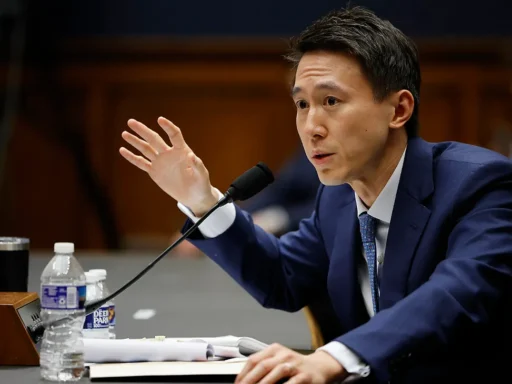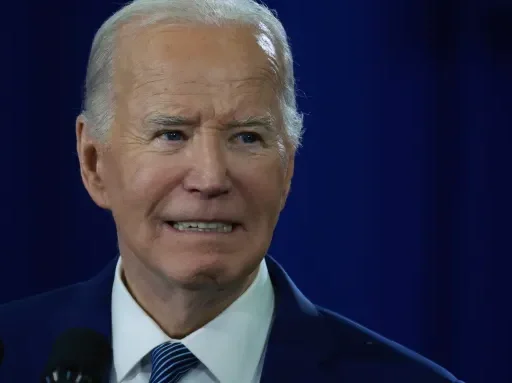
If you’re out of a job because of COVID and you can’t afford Netflix, the pandemic might be set to get even worse.Lawmakers have squeezed controversial legislation into the draft of its COVID-19 stimulus bill, according to draft text of the legislation, illegal streaming for commercial profit could become a felony.
via: Complex
A part of the massive 5,500+ page government funding/COVID-relief package that is expected to be passed through Congress in the next few days will include a legislative priority for the entertainment industry that will bump up the penalty for operating a for-profit illegal streaming service from a misdemeanor to a felony. Under the new law a violation of this rule could land someone in prison for up to 10 years.
Deadline described the proposed rule (which appears likely to be passed) thusly:
Felony streaming. Establishes criminal penalties, including prison time, for those who “willfully, and for purposes of commercial advantage or private financial gain, offer or provide to the public a digital transmission service” that offers unauthorized movies and TV shows. Penalties include fines and sentences of up to three years, or five years if the offense involved one or more titles, and “the person knew or should have 7 known that the work was being prepared for 8 commercial public performance.”
Less than two weeks ago the increase in penalties was proposed by North Carolina Senator Thom Tillis (R). Note that a similar proposal was made about 10 years earlier by Minnesota Senator Amy Klobuchar (D). Tillis’ attempt seems more likely to pass, with The Hollywood Reporter mentioning that Tillis’ version is more specific in that it would target operators of commercial sites that illegally stream movies/music over punishing users.
Public Knowledge, a public interest group that signed a letter expressing concern over the proposed legislation (and especially its tying to an important government funding bill), did acknowledge that the way it was written was “narrowly tailored” to omit violators who simply click on a link or stream an unlicensed work.
“As a general matter, we do not see the need for further criminal penalties for copyright infringement,” said senior policy counsel Meredith Rose through a statement. “However, this bill is narrowly tailored and avoids criminalizing users, who may do nothing more than click on a link, or upload a file. It also does not criminalize streamers who may include unlicensed works as part of their streams.”
Specific text of the bill states:
It shall be unlawful for a person to willfully, and for purposes of commercial advantage or private financial gain, offer or provide to the public a digital transmission service that:
is primarily designed or provided for the purpose of publicly performing works protected under title 17 by means of a digital transmission without the authority of the copyright owner or the law
has no commercially significant purpose or use other than to publicly perform works protected under title 17 by means of a digital transmission without the authority of the copyright owner or the law; or
is intentionally marketed by or at the direction of that person to promote its use in publicly performing works protected under title 17 by means of a digital transmission without the authority of the copyright owner or the law
In addition to the establishment of stricter copyright infringement rules, the spending bill will also create a special small claims court for people who hold copyrights to pursue alleged infringers. Advocates believe this would allow said copyright owners to avoid the often expensive federal court system and resolve disputes more quickly, while opponents of the legislation think it would put decisions in the hands of bureaucrats who are believed to lean towards siding with industry.
As Deadline puts it:
CASE Act. Creates a small claims court for copyright holders to pursue . Participation, however, will be voluntary, and any of the parties can object and pursue cases in federal district court. The cases would be heard by a Copyright Claims Board established through the Copyright Office, and, in general, any damages awards would not exceed $15,000. Parties who pursue more than one claim in a proceeding would not be able to recover more than $30,000. Parties also would in most cases bear their own costs.
Tracking firm Muso found that the COVID-19 pandemic may have led to a surge in illegal streaming activity, with a 43 percent uptick in American visits to illegal movie pirating sites in the final week of March (when compared to the final week of February).
Despite the careful wording to stress that penalties will be aimed at people operating these sites, there seems to be bipartisan anger (or at least annoyance) at the haste with which members of Congress are supposed to read through the massive legislation before voting on it:
It’s not good enough to hear about what’s in the bill. Members of Congress need to see & read the bills we are expected to vote on.
I know it’s “controversial” & I get in trouble for sharing things like this, but the people of this country deserve to know. They deserve better.
— Alexandria Ocasio-Cortez (@AOC) December 21, 2020
Deficit busting bill will be 5,593 pages!
If 250 words per page, then that’s 1,398,250 words
If Congresspeople read at the American average of 300 words/min (a big assumption)
then a Congressperson might read this in 4,660 minutes or 77.68 hours!
(if no rest breaks)
— Rand Paul (@RandPaul) December 21, 2020
Of all the things this stimulus bill needs to be focusing on, this ain’t it.





